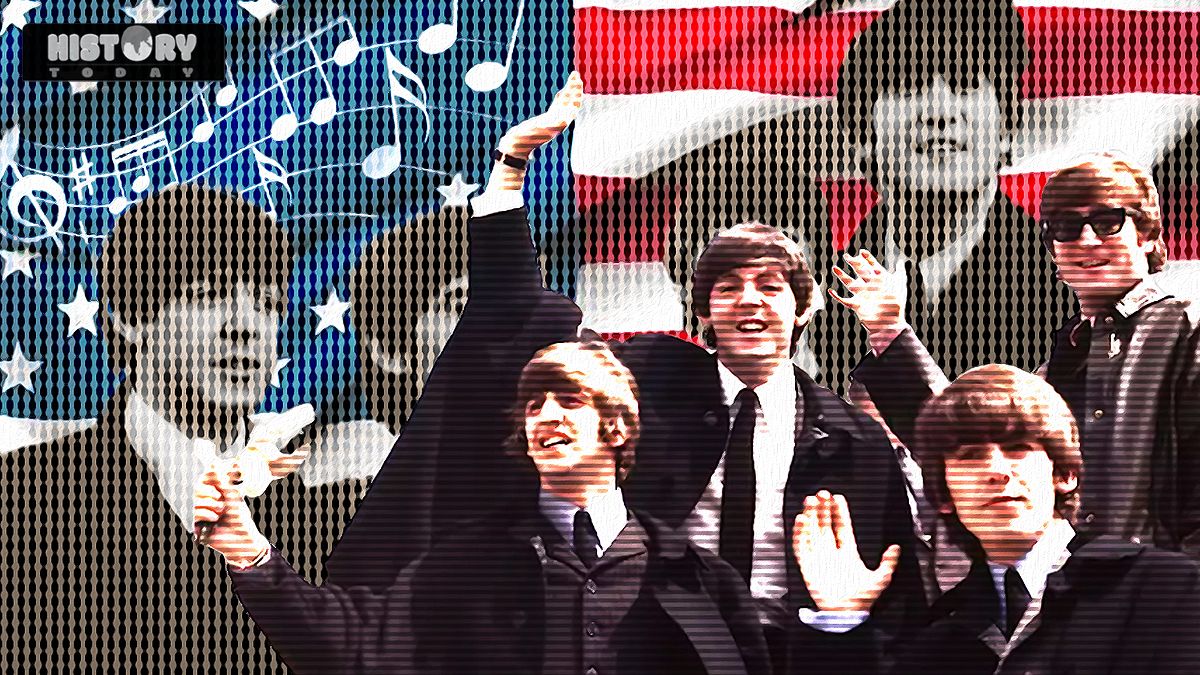What became known as ‘Beatlemania’ began on this day in 1964 when the British band ‘The Beatles’ made their landmark visit to the United States, where they were greeted by 3,000 fans upon landing.
Do you enjoy reading about historical events? If you have an interest in learning about key moments from the past, Firstpost Explainers’ ongoing series, History Today , is the perfect resource to explore important milestones in history.
On this day in 1971, women in Switzerland won the right to vote and stand for election at the federal level, following a failed attempt 12 years earlier. Meanwhile, in 1992, the Maastricht Treaty was signed, paving the way for the creation of the European Union, which was officially established on November 1, 1993.
Here is a look at these events in details:
‘Beatlemania’ begins: The Beatles arrive in the US
On February 7, 1964, the British band ‘The Beatles’ made their historic arrival in the United States, landing at New York’s John F. Kennedy International Airport. This moment marked the start of what would soon be known as “Beatlemania,” as 3,000 thrilled fans caused near chaos when the band stepped off the plane onto American soil.
It was the Beatles’ first visit to the United States, just six days after securing their first No. 1 US hit with “I Want to Hold Your Hand.” The British rock-and-roll quartet, which included John Lennon, Paul McCartney , George Harrison, and Ringo Starr, captivated audiences with performances on “The Ed Sullivan Show” in New York City and Miami Beach, along with concerts at Carnegie Hall and the Washington Coliseum.
In just 15 days, the Beatles had taken America by storm. Their singles and albums sold in the millions, and by April 1964, all five best-selling US singles were Beatles songs.
Impact Shorts
More ShortsThe first official North American tour saw the band perform 32 shows in 26 venues across 24 cities in just 33 days. By the end, they walked away with earnings of $1 million, which is equivalent to about $7.5 million today.
Swiss women can now vote, stand for elections
On February 7, 1971, Switzerland took a massive step towards gender equality by granting women the right to vote and stand for election at the federal level. This came decades after Germany (53 years earlier), Austria (52 years), France (27 years), and Italy (26 years).
Women’s associations in Switzerland had long pressured the Federal Council and campaigned relentlessly to secure majority support among voters and cantons.
A previous attempt on February 1, 1959, had been unsuccessful, with male voters rejecting women’s suffrage by 654,939 votes (66.9%) to 323,727 (33%). However, facing growing protests from women’s organisations, the Swiss government held a fresh vote in 1971. After a century of feminist struggle, Swiss women finally won the right to vote and stand for election.
This led to the amendment of Article 72 of the Federal Constitution of May 29, 1874. When the 1971 winter session of parliament began, the first female members took their seats, each welcomed with a rose.
Establishment of the EU: Maastricht Treaty is signed
After centuries of conflict, Western European nations took a major step towards economic cooperation with the signing of the Maastricht Treaty on February 7, 1992.
The treaty, signed by European Community ministers, outlined plans for deeper economic integration, common foreign and security policies, and greater cooperation on crime, terrorism, and immigration. It also laid the foundation for a single European currency, which would be called the “euro”.
On November 1, 1993, the European Union (EU) was officially established as the treaty came into force. By then, 12 nations had ratified it: Great Britain, France, Germany, the Irish Republic, Spain, Portugal, Italy, Greece, Denmark, Luxembourg, Belgium, and the Netherlands.
In the years that followed, Austria, Bulgaria, Finland, Sweden, Cyprus, the Czech Republic, Estonia, Hungary, Latvia, Lithuania, Malta, Poland, Romania, Slovakia, and Slovenia also joined.
Notably, in 2016, the United Kingdom voted to leave the European Union.
This Day, That Year
1904: The Great Baltimore Fire broke out, becoming one of the worst city fires in American history. It destroyed more than 1,500 buildings in central Baltimore.
1984: Space Shuttle ‘Challenger’ astronauts Bruce McCandless II and Robert L. Stewart conducted the first untethered spacewalk.
1991: Jean-Bertrand Aristide, a popular leftist priest, was sworn in as Haiti’s first democratically elected president.
2013: Mississippi officially certified its ratification of the 13th Amendment to the U.S. Constitution, becoming the last state to formally abolish slavery.
2021: A section of the Nanda Devi glacier broke off, releasing trapped water and triggering an avalanche and flash floods in Uttarakhand’s Chamoli district.
2021: The Weeknd became the first Canadian solo artist to headline the Super Bowl halftime show.
)